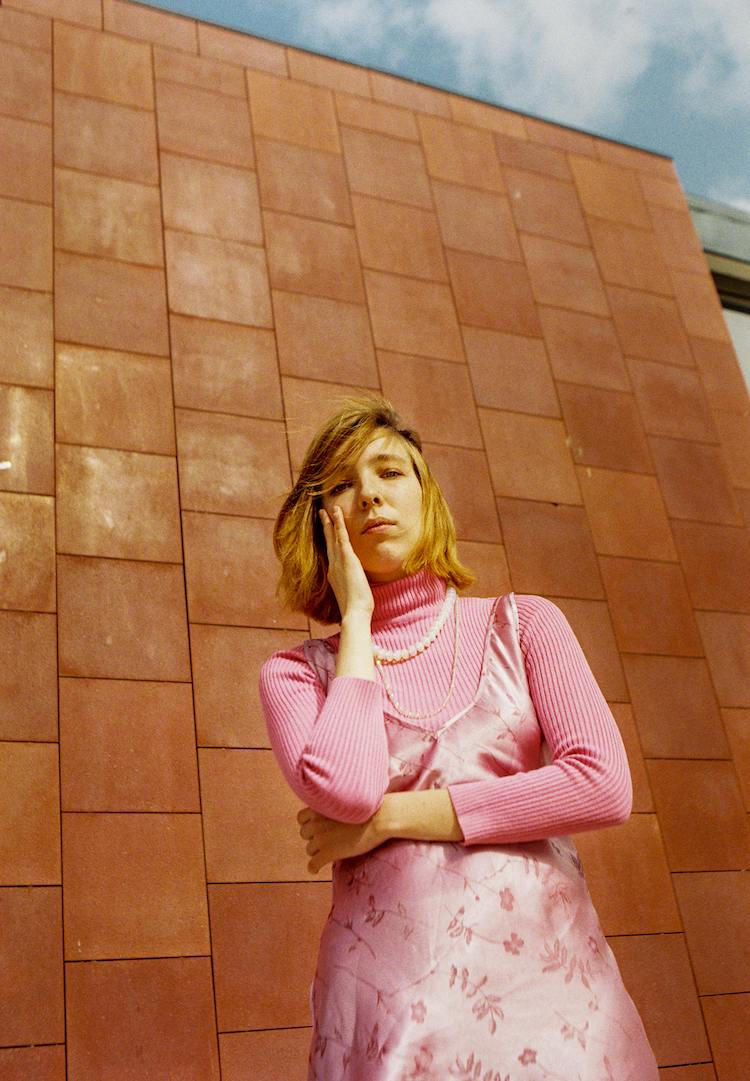Shopping
I stopped shopping and it healed my relationship with my body

“It became clear that the fantasy conjured up by new clothes had been the perfect distraction for me.”
Since the days of childhood dress-ups, fashion has been a means of reinvention. Whether it’s the tangled feather boa in the costume box or the contents of an impending parcel, clothes present new possibilities. The fantasy of a better-dressed self has long been a fixation of mine. For years now, I’ve pined after her as she takes the starring role on my moodboards and in my pre-sleep scenarios.
My love of clothes made it feel like I was building my very own avatar every morning, a green diamond like they have in The Sims universe practically pulsing above me. With the right combination of well-proportioned trousers and my ideal seasonal colour palette, I’d level up and unlock new traits and powers. I just had to find the right combination. It turns out, there’s a science behind my need to optimise my closet.
For more fashion news, shoots, articles and features, head to our Fashion section.
Enclothed cognition explains how the clothes we wear affect our psychological processes. It’s not only because of the symbolic meaning clothes hold but the physical experience we have wearing them. In fact, studies have found that scientists who don a white-lab coat will perform their tasks to a higher standard. Clothes are literally interwoven with power and possess the very real ability to legitimise who we are.
It’s this type of self-confirmation many of us fashion-inclined folks are trying to find in our clothes. For me, it’s striking the perfect equilibrium of niche brands and thrifted gems to summon my put-together-but-cool-girl self into a reality. This season’s Paloma Wool zip-up knit would be my white-lab coat in this context.
Unsurprisingly though, this love of clothes and all they represent hurled me into a toxic love affair with spending. And even more unsurprisingly, this seems to be a generational problem. Up Bank recently found that 46 per cent of Gen Z blame their lack of saving discipline on shopping addiction. If I widen my net, Australians overall were recently found to buy more clothes per person than any other country at a shocking 56 new items a year.
Taking a break from shopping
In January, with a wardrobe stuffed to the brim and an existential crisis brewing, I decided to put myself under a strict spending lockdown. I had survived one too many mornings spent battling the fortress that was my closest and had a fresh set of saving goals. I finally decided something had to change. No buying for an indefinite period of time, no matter how good the bargain was.
For years, I’d been denying I had a problem. I’d watch Confessions of a Shopaholic and feel reassured; I had no credit cards in my freezer and no impractically tiny green scarves in my possession. I stayed away from the clutches of Temu or Shein, nursing only an obsession with the Matches Fashion app as I hunted the sale section.
However, my shopping ban quickly unveiled the true extent of my vice. In the first few days, I craved the refresh of a loading tracking page for an impending package. I could barely resist having a temper tantrum over not being able to get Alias Mae net sandals at half-price. Once that subsided, I hungered for the rush of being on the precipice of my best self – of soothing my poor self-image with a new purchase.
The possibilities of clothes (and the dopamine that came with them) meant I never had to interrogate my insecurities too closely. ‘New stuff’ made my present self a temporary state. I’d be saved when I found the ‘flattering’ jeans, the ‘right’ fit or ‘my’ colour. I always believed I was just a few hundred dollars away from being the version of me I dreamed of; I just had to curate the right shopping haul.
When I cut myself off from shopping, I didn’t have a place to funnel my self-image baggage. It became clear that the fantasy conjured up by new clothes had been the perfect distraction for me. Ironically, my self-esteem as a reformed shopaholic is the healthiest it’s ever been. I’ve had to accept myself for how I am rather than latch onto how I could be through the delusion of dressing. There was no point getting fixated on how my arms looked and finding a style of top that would hide them when nothing was coming in the mail.
As those studies on enclothed cognition found, clothes only have that power when there’s a co-occurrence. The symbolic meaning of clothes has to co-exist with a complementary physical experience for them to have an effect. So while I (and we) project a whole matrix of meaning onto clothes, the physical experience I had in my body was rendering them powerless. Put simply, like many of us, there is plenty I don’t like about myself and these things won’t cease to exist in the presence of a Ganni peplum tie blouse.
Beyond bolstering my savings account and environmental footprint, my shopping ban has helped me find the closest thing to body acceptance. And this near-acceptance has been incredibly freeing. My love for clothes hasn’t dwindled, but my obsession with all they could mean definitely has.
If you’re struggling with a shopping addiction, you can find more advice here.








